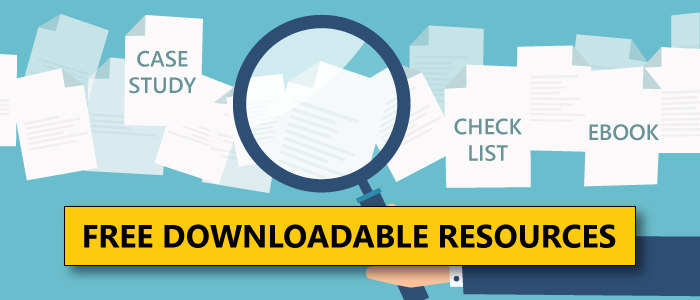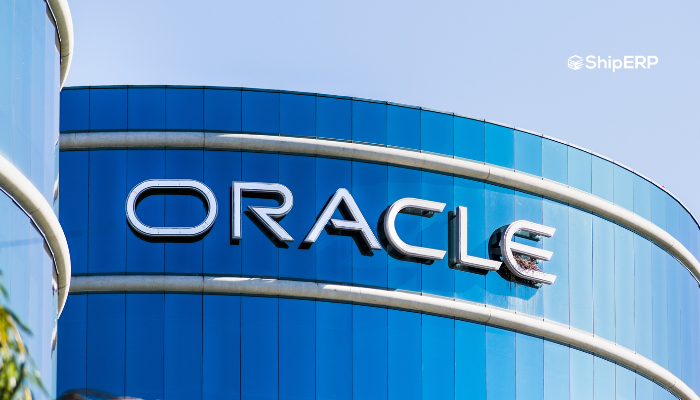
Understanding the Oracle Product Suite: A Quick Outline of Oracle Products and Services
Oracle's cloud infrastructure platform offers a full suite of integrated cloud services to meet a multitude of business needs.
Understanding Oracle's product suite will give you a fuller, more complete picture of this platform and how you can benefit from it. Today, we’ll share the complete (but quick) overview of the services and products offered by Oracle.
To start, Oracle is a major multinational corporation focusing on making and selling hardware and software to businesses to streamline their operations. If the prospect of working with Oracle’s product suite excites you, then you’re on the right path.
Let's get started!
Products And Services Offered By Oracle
|
|
Products & Services |
|
1 |
|
|
2 |
|
|
3 |
|
|
4 |
|
|
5 |
|
|
6 |
|
|
7 |
|
|
8 |
|
|
9 |
Now, we’ll explore in greater detail the full suite of product and solutions from Oracle.
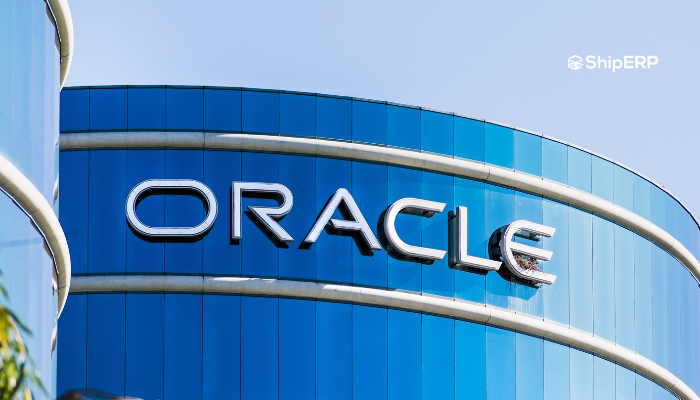
Applications
Whether working on a small or global scale, getting things done daily requires a lot of effort. Oracle has offered specific computerized solutions to make these operations more manageable.
Oracle introduced the following programs that can improve your performance on a personal and professional level
CRM on Demand:
CRM on Demand is a set of tools that includes Customer Relationship Management software (CRM). These solutions, built on cloud infrastructure, can efficiently propel business operations, product marketing, sales and services, and much more
For many enterprises, the result is a significant boost in productivity, with an increased capacity to analyze actionable data.
Demantra:
Arguably the most popular product, Demantra, is a highly effective demanding tool.
It also provides solutions for demand and operations management, and aids in sales and commercial planning. Various choices may be made based on this tool's demand forecasting results.
Demand Management, Predictive Trade Planning & Optimization, and Real-Time Sales & Operations Planning are a few examples of the solutions available in this space.
EBS:
What is oracle's e-business suite? With E-Business Suite (EBS), you can access a comprehensive suite of tools for controlling and automating your company's operations.
Oracle's range of integrated software helps satisfy corporate goals and save money by automating solutions.
E-Business Suite solutions include:
- Finance Management
- Human Resources
- Portfolio management
- Logistics
- Manufacturing
- Procurement innovation
- Technological tools
- Delivery
Fusion Applications:
When looking for an enterprise resource planning (ERP) suite, many companies turn to Oracle Fusion suite.
Features from Oracle's E-Business Suite--JD Edwards, Siebel, and PeopleSoft—were included in the broader concept for Oracle Fusion solutions.
Oracle Fusion Middleware is the foundation of Oracle Fusion applications, and customers may use it to create SOAs.
Hyperion:
This category, dubbed Hyperion, contains financial management, analysis & planning, forecasting, budgeting, data aggregation & reporting solutions.
JD Edwards EnterpriseOne:
This is a category of ERP-supporting software. What is Oracle ERP? Within this category of ERP-supporting software, JD Edwards EnterpriseOne automates and manages critical company activities for optimal performance.
Additionally, the EnterpriseOne software package permits independent operation settings and offers more hardware, databases, and operating systems.
Oracle Commerce:
In order to keep up with the ever-evolving needs of businesses, the Oracle Commerce platform has been utilized to roll out a variety of commerce apps.
By using these solutions, online retailers may provide customers with a reliable and pertinent shopping experience no matter where they’re located.
Oracle Policy Automation (OPA):
Oracle Policy Automation is an automation platform designed to record, manage, and deliver rapidly changing organizational policies and business rules. It allows uniformity across mobile, online, contact centers, etc.
Oracle Unified Method (OUM):
Oracle Unified Method is a methodology for implementing all Oracle products.
PeopleSoft:
After purchasing PeopleSoft in 2005, Oracle improved upon existing apps to meet sophisticated corporate needs. This integration added 1,000 new feature functionalities to the product.
Siebel:
Oracle Siebel is a renowned CRM system that handles customer-facing applications to boost company growth. This area includes Sales, Commerce, Marketing, Contact-Center, Services, and Social Networks.
Oracle Database
Oracle is widely recognized as a market leader in several areas, and its database is no exception.
Oracle can operate and manage services efficiently with various database solutions, regardless of the business size.
The following are some of the categories in which Oracle provides database solutions:
Data Warehousing:
Oracle delivers quick, secure, highly efficient, and exceptionally massive data warehousing solutions for companies.
Database App Development:
Oracle has launched web development tools combined with expert-level databases to facilitate development. SQL, PL/SQL, XML, Oracle APEX, etc., represent some of the many application development categories.
MySQL:
Oracle’s acquisition of MySQL served to expand its database operations. It's an Relational Database Management System (RDBMS) that combines speed, security, and user-friendliness.
Oracle also announced Oracle MySQL Cloud Service, which is based on MySQL Enterprise Edition and helps businesses increase flexibility while greatly reducing costs.
Database Oracle:
Oracle database is simplicity redefined—it’s fast, resilient, highly secure, and efficient.
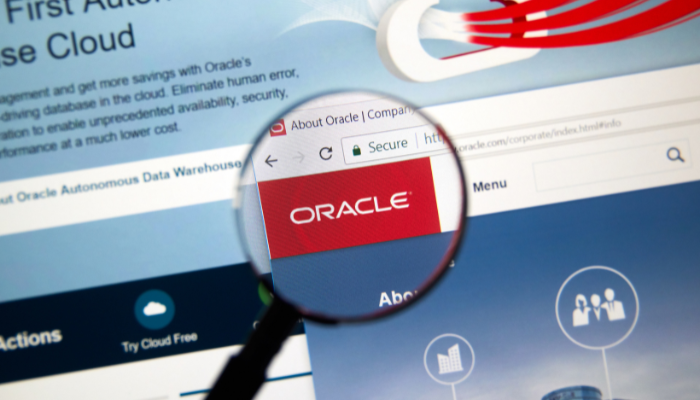
Enterprise Management
The umbrella of Enterprise Management includes the following subsections:
Oracle Apps Testing Suite:
Application Quality Management is a testing system that focuses on automated testing scripts.
Oracle Enterprise Manager:
Oracle Enterprise Manager supports Oracle product administration. For the management of several cloud-based programs, Oracle offers Oracle Cloud Management.
Oracle EMO:
Oracle EMO is capable of managing hardware (including Oracle SPARC and x86), operating systems (including Solaris and Linux), and virtualization.
Industries
Oracle has established a global footprint, thanks to the depth of solutions created to automated business activities in diverse sectors like advertising, manufacturing, retail, communications, and finance.
The following are industry domains in which Oracle resides:
Construction (Primavera):
Oracle's Primavera products help alter project management. These technologies simplify project planning, management, and delivery processes and allow data-driven decisions.
Oracle Communications:
It provides organizations and network service providers with integrated solutions to streamline business operations and expedite communication expansion.
Oracle Financial Services:
These solutions assist firms in automating revenue management, billing, financial data analysis, and more with precision, all while reducing manual work and revenue loss.
Oracle Health Sciences:
These products optimize healthcare operations, analyze finances, automate administrative duties, and assist R&D.
Insurance Oracle:
Using these cloud-compatible technologies, firms may streamline day-to-day activities, cut operating expenses, and boost efficiency to meet market needs.
Retail Oracle:
Oracle’s retail solutions encompass merchandising, planning, optimization, and technology. These tools help shops manage inventories, supply chains, and operations.
Oracle Tax Applications:
These applications operate with business finance systems to provide appropriate taxes to the government without manual difficulties.
Oracle Utilities:
Oracle Utility solutions improve Customer Care, Billing, Self-Service, Asset Management, and Service Order Management.

Java And Middleware
Oracle's middleware solutions are often considered to be the finest. The following comprise the different fields in which Oracle has shown strength with its volume of manufactured products: shows particular strength and produced products are described below with the needs of the consumer in mind:
Business Intelligence Middleware:
Oracle Business Intelligence helps with business strategy, planning, and optimization.
These business tools automate data analysis, alerts, reporting, model development, etc. to increase operating speeds and boost corporate growth.
Cloud App Foundation:
This Oracle platform enables the construction of high-performance cloud apps, including the optimization of scalability, dependability, availability.
Oracle’s offering also includes traditional and cloud-based settings.
Integration:
Oracle Data Integration is a data management software that integrates data across companies and ensures data consistency.
It uses the Extract-Transform-Load (ETL) architecture and assures data transformation, synchronization, quality, and more during integration. It's also helped companies cut development expenditures by 30%.
Identity Management:
Oracle’s Identity Management System manages user IDs across companies. It’s a platform for identification, access, and directory services. This method helps the company increase its security and social business.
Java:
It’s a programming language that can be coupled with Oracle to create sophisticated corporate apps. Java SE, Java EE, and Web Services are among these Java categories.
Middleware Tools:
Oracle has produced development tools and frameworks that application developers may utilize to select the development strategy and handle issues throughout corporate application development. These tools are ADF, Forms and Reports, and MAF.
SOA/BPM:
Through cloud-integrated systems, Oracle is able to combine complicated apps and manage app-service interactions.
Tuxedo is Oracle's scalable, distributed transaction processing technology.
WebCenter:
It oversees user-engagement goods. Oracle WebCenter Content, Oracle WebCenter Sites, and Oracle WebCenter Portal represent the three components that comprise this solution.
Operating System
The following will give you a better understanding of Oracle’s OS offerings for enterprises:
Oracle Linux:
Oracle Linux combines Linux advances with Oracle's capabilitiesto allow users to run Oracle products on Linux.
Naturally, Oracle Linux can also run any Red Hat Enterprise Linux-compatible product.
Solaris:
Oracle's new OS offers data security and cloud interoperability. It assures legacy app backward compatibility and seamless cloud operation.
Oracle Cloud Services
Cloud-based systems are regarded by many companies as the future of enterprise resource planning, and the following section explores these solutions and services in at greater length:
Infrastructure as a Service (IaaS):
Oracle's IaaS service in the cloud is aimed at virtualizing customers' access to physical computer resources over the internet.
Platform as a Service (PaaS):
With PaaS,, businesses can leverage the cloud as a platform for creating, operating and administering applications with a minimal outlay of capital.
Data management, application development, business analytics, administration, integration, mobile cloud service, and security are just a few of the many domains where your company could benefit.
Oracle SaaS Tools and Technologies:
Using Functional Setup Manager, this segment handles cloud-based application setup and security.
Oracle Customer Experience Cloud-SaaS:
This platform can assist your business by providing an individualized service that fosters lasting client relationships and guarantees consistency and high quality, while offering business solutions.
Oracle CPQ Cloud, Oracle Sales Cloud, Oracle Marketing Cloud, and Oracle Service Cloud all have cloud-based solutions developed for them.
Oracle Enterprise Performance Management Cloud-SaaS:
Oracle Cloud computing is used to produce Enterprise Performance Management (EPM) systems that can anticipate performance, boost efficiency, and maintain consistency and quality in operational and financial planning.
Oracle ERP Cloud-SaaS:
This section focuses Oracle Financials Cloud, Oracle Project Portfolio Management Cloud, and Oracle Procurement Cloud.
Oracle HCM Cloud SaaS:
Oracle Cloud is utilized to onboard personnel and upgrade performance. Oracle Global Human Resources Cloud offers HCM cloud-based solutions.
Oracle Supply Chain Management Cloud-SaaS:
What is oracle SCM? Supply chain management (SCM) technologies allow consumers to create their own customized supply chain processes.
On the other hand, Oracle Transportation Management (OTM) is another part of the supply chain. What is OTM? OTM is a unified platform that allows organizations to control all transportation activities across their supply chains.
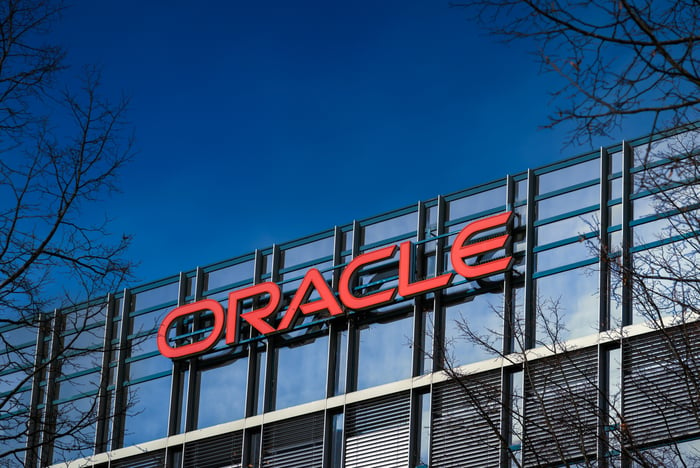
Oracle Systems
Oracle's superior performance, storage, and efficiency are known globally. These system types include:
Engineered Systems:
Oracle's Engineered Systems are pre-integrated. Big Data Appliances, Database Appliances, Exadata, Exalogic Elastic Cloud, and Exalytics are all part of this collection
Servers:
Oracle offers server administration and data center efficiency and security solutions.
Storage:
Oracle has created several storage solutions that are safer for sensitive information and more efficient than older systems. These storage solutions include:
- Zero Data Loss Recovery Appliance.
- Oracle ZFS Storage Appliance.
- Storage Tek Tape, etc.
Virtualization
Virtualization is the creation of a software "clone" that functions identically to the original, saving money in the long run.
Virtualization can benefit application software, storage devices, networks, servers, and even whole computer systems.
Oracle's virtualization software can also be used to virtualize applications from other vendors, as well as Oracle.
Network Virtualization:
Using network virtualization technology, users can virtualize network resources as logical services. It will improve network resources, security, and scalability.
Server Virtualization:
Oracle's virtualization software is used to divide a real server into several smaller "virtual servers" during the server virtualization process. Business organizations can save money on infrastructure costs and use available resources more efficiently by adopting this method.
Final Verdict
Oracle stands alone as the sole technology company to offer both a cloud infrastructure platform and a full suite of integrated cloud apps.
From traditional business workloads to cutting-edge cloud-native apps and data platforms, the Oracle Cloud has you covered in every aspect of IT migration, development, and operation.
For even more information to help you understand Oracle's product and service suite basics, check out some of our other free Oracle resources





